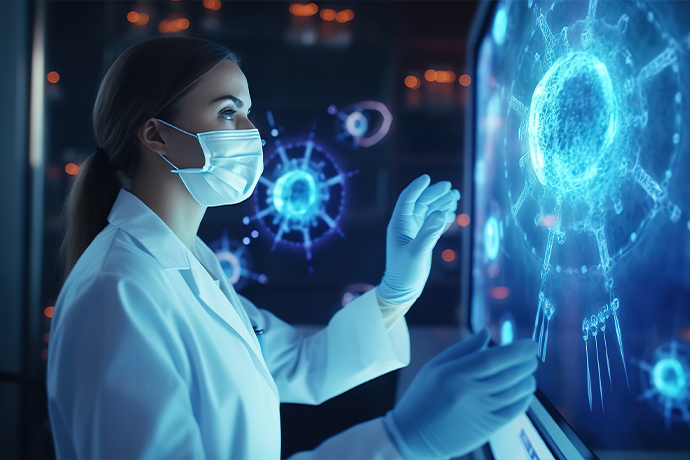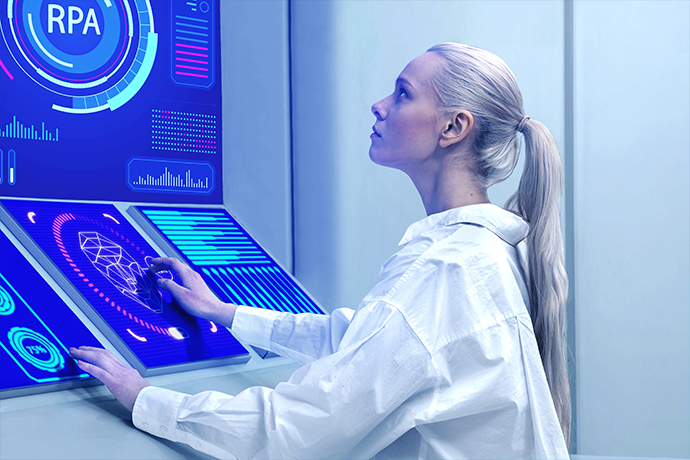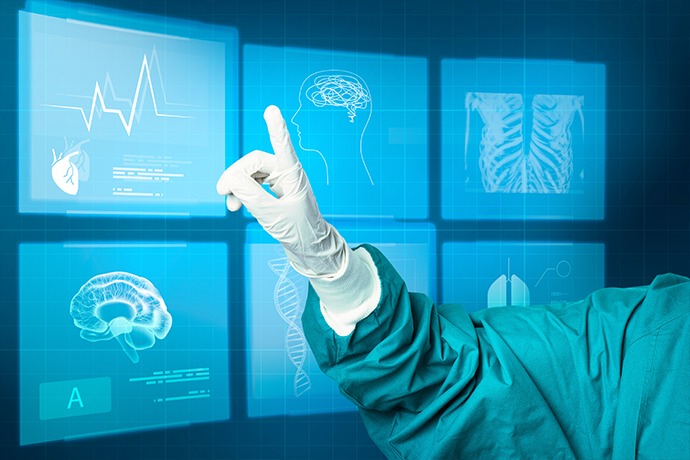 SPEAKERS
SPEAKERS
AI in healthcare minimizes errors by increasing the effectiveness of patient care, diagnostics, and operations, bringing even more accuracy and efficiency than before, with personalized treatment plans that bring improved outcomes.

Artificial intelligence in healthcare is sweeping through unprecedented changes that hold much promise for the betterment of patient care, smoothing of operations, and advancement of medical research. Imagine a world where AI-powered diagnostics could identify diseases with pinpoint accuracy, predictive analytics foresee patient outcomes and robotic surgeries conduct complex procedures with minimal invasiveness. The point is, that this is so much more than just a glance at the future: reshaping how healthcare providers operate and deliver services, this transformative technology is at work today. This paper reviews in depth exactly how AI can dramatically affect healthcare in better outcomes, reduce costs, and ultimately save lives.
AI applied in healthcare is already revolutionizing the sectors with a bundle of benefits for betterment in patient outcomes and smooth operations. Have you ever thought about how AI will transcend medicine's diagnostic accuracy? The system analyzes terabytes of medical records and allows for the recognition of patterns that no human doctor can. In that way, it allows for earlier diagnosis of diseases and more personalized treatment plans. AI application in healthcare also reduces human error, hence offering reliable and consistent care.
Such innovations are led at the forefront by AI in healthcare companies bringing about serious changes in how medical services are offered or delivered. For instance, AI-driven robots assist in surgeries and offer precision, reducing recovery times. Moreover, Artificial Intelligence is changing administrative tasks like scheduling, and patient record management, among others, so that health professionals would be able to have more time with patients. Consequently, it indicates what AI can most offer in health by making the sector effective and efficient for better patient care services to avert good outcomes.

AI is revolutionizing healthcare, and there are many advantages associated with it, all of which assist in raising the bar of patient care and operational efficiency. You should therefore be thinking of how AI could redefine your experience within healthcare. Some of the important benefits of the use of AI in healthcare include:
AI speakers have repeatedly spoken about some of the game-changing innovations across healthcare. Of these, AI-powered diagnostic tools take precedence. The diagnostic tools are designed to identify various diseases at the nascent stage and with accuracy by analyzing voluminous medical data. For instance, AI algorithms detect cancerous cells through medical images with an accuracy that is often beyond the capability of any human. Early detection ensures timely treatment of an individual patient and significantly changes the outcomes.
One more impressive innovation concerns the application of artificial intelligence in the sphere of personalized medicine. Based on the analysis of genetic information, lifestyle, and anamnesis of a patient, AI creates individual treatment schemes. In this way, treatments will be more effective and have fewer side effects. AI speakers commonly say how AI-driven predictive analytics is capable of predicting the outcome of a patient and even coming up with preventive measures. Robotics AI approaches have changed the face of surgeries to this extent where surgery is less invasive and recovery time is shorter. Such innovations are not only going to improve patient care but also optimize healthcare operations – increasing the efficiency of the industry, and responsiveness.

Several leading industries are now taking the reins in respect to AI with healthcare and creating some very amazing breakthroughs in patient care and medical research. The very first that comes to mind is IBM Watson Health. It deploys its AI to analyze huge volumes of medical data from multiple sources. This helps doctors create more accurate diagnoses and specific treatment plans. You may know that a sweep of the cardio literature can be digested, interpreted, and learned in seconds by Watson. It is this speed and accuracy that are changing the way healthcare experts will take care of their patients from now on.
The other heavy hitter in the industry is Google Health, which leverages artificial intelligence to cross boundaries in improving diagnostics and patient outcomes. DeepMind, developed by Google, has successfully predicted the deterioration of patients and medical images. The AI-powered tools would therefore help doctors identify diseases earlier and plan effective interventions. Moreover, by using AI, companies like Philips and Siemens Healthineers develop innovations in medical imaging and patient monitoring for better care and efficient workflows. The factor behind attaining all this is the continuous shifting of boundaries by companies regarding what can be achieved through AI for health and care, setting new standards for the industry and thus ensuring that technological advancements translate into concrete benefits for both patients and healthcare providers.
AI is leaving a big impact in real-world healthcare environments by changing the way medical professionals diagnose and treat patients. In radiology, AI algorithms have already been made to analyze medical images, such as X-rays, MRIs, and CT scans. This capability enables radiologists to identify anomalies at a much earlier stage than traditional methods would have allowed for, thus enabling very early detection of tumors or fractures. Wonder what early detection can do for a patient? AI, therefore, makes it possible for doctors to intervene much earlier on diseases at their nascent stages for better recovery rates and reduced healthcare costs.
The second way in which AI is changing the face of patient care in terms of diagnostics is through predictive analytics and personalized medicine. For example, AI-powered tools track vital signs constantly and alert the health care providers in advance of a critical event so that proper action may be taken to prevent deterioration of the patient's condition. This proactive approach secures patient safety and enables timely interventions to be made. Moreover, AI personalizes treatment plans by analyzing a patient's genetic makeup, lifestyle, and medical history. Thereby, these treatments can be made more effective with fewer after-effects. From improving diagnostic accuracy to optimizing the care of patients, real-world applications of AI in healthcare range very broadly and are transformative.
AI in healthcare is the channel to unparalleled progress in patient care, smoothing operations, and quickening medical research. It has huge potential to revolutionize healthcare: enhancing diagnostic capabilities for health providers right from early and accurate diagnostics to personalized treatment plans, impacting a change in patient outcomes. Companies at the top will innovate and set new standards, pushing bounds. Future applications of AI in healthcare grow because of its learning curve, tending to bring even greater benefits. For any kind of health provider who has the vision to offer the highest quality care in a world of fast change, there is no alternative to embracing these technologies. The future of healthcare is here – it's powered by the power of artificial intelligence.